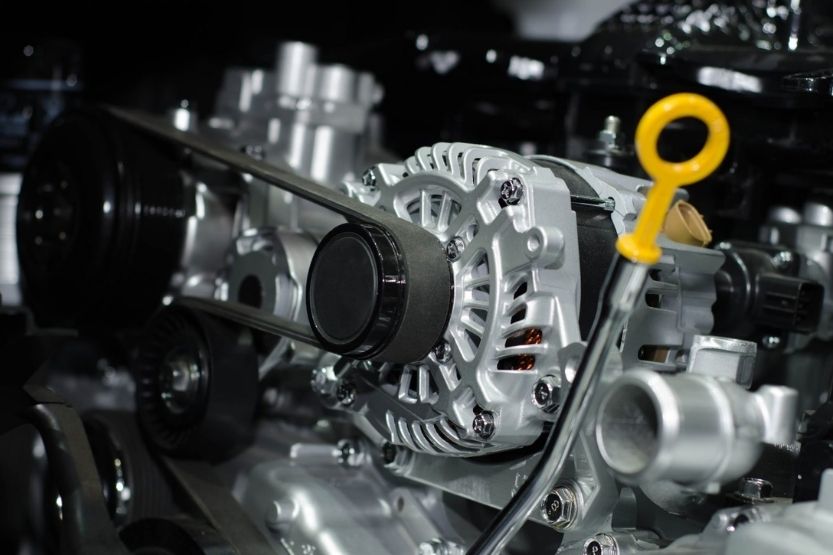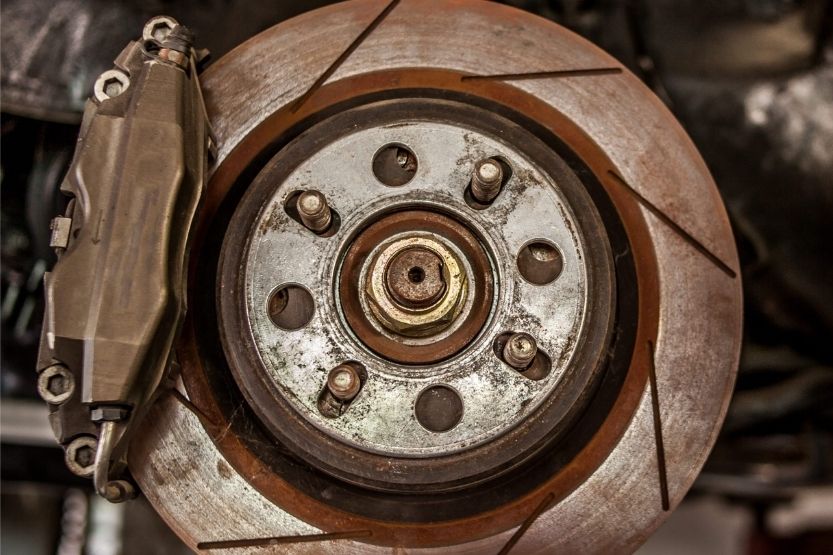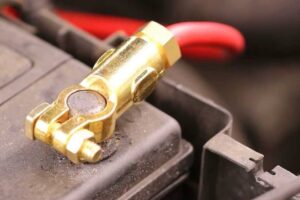There’ll be times when you turn on your car engine, and nothing happens. Since there’s seems to be no electricity flowing, it could be because your alternator or battery is already old. How long do alternators last?
On average, alternators can last for seven years. This is equivalent to 150,000 miles. The life of an alternator depends on several factors. These include the number of electronic devices used by the car, the car’s overall condition, and the quality of the alternator.
The alternator is an important part of your car’s electrical system. When it gets old, it will show its weaknesses. You will experience various electrical problems in your vehicle. If it is not fixed or replaced, it will fail eventually. But an alternator can also fail suddenly, even if it’s not of good quality.
Read on to learn more about the average lifespan of alternators, the symptoms of ailing alternators, and how you can extend an alternator’s service life.
How Long Do Alternators Last?

Alternators Can Last for About Seven Years
In general, you can expect your alternator to last for about seven years or around 150,000 miles. The longevity of your alternator depends on several factors. One factor is the number of electronic devices in your car. Another factor is the overall condition of your car. The quality of the alternator also makes a difference.
Vital Part of a Car’s Electrical System
It is an important part of your car’s electrical system. If it fails, you won’t be able to start your car. A failing alternator can cause many electrical problems in your vehicle. If it is not fixed or replaced, it will eventually fail.
Symptoms of a Failing Alternator
While alternators fail when they grow old, they can also suddenly fail. So, you need to know the signs of a failing alternator. Several symptoms will show you if it is going bad.
The most obvious symptom is if your car won’t start after you’ve turned on the ignition. Another symptom is if your car stalls while you are driving it. If you are experiencing myriads of electrical problems, that will also indicate that the alternator is going bad.
Average Lifespan of Alternators
Alternator’s Quality Affects Its Lifespan
It doesn’t matter if your car is new or old; it can experience alternator problems. That’s why the quality of the alternator is the key to its longevity. If the alternator is made of good quality parts and is produced meticulously, it will last long. But if the reverse is true, it will fail early on.
The alternator is a crucial component of your car’s electrical system since it ensures the battery is functional. Both are the reason why your vehicle moves.
Alternators Can Last from 6-10 Years
In that sense, it is quite challenging to estimate the precise lifespan of your alternator. Aside from the factors I enumerated before, your driving habits also affect lifespan. With that said, alternators can last from 6 to 10 years or around 80,000 to 150,000 miles.
Symptoms of Ailing Alternators
It is somewhat challenging to identify the signs of an alternator going wrong because of its close relationship with the battery. Their symptoms are almost identical since they both deal with the electrical requirements of your car.
However, you can safely say that your alternator is going bad if you see the following signs:
- Your car won’t start
- Headlights are dimming or inconsistent
- Battery warning light is triggered
- Your car stalls
- Alternator light is triggered
- Electrical parts fail to operate
- Car accessories won’t turn on or stops working while driving
- Flickering or dimming interior lights
- Grinding or whining sounds in the engine bay
Can You Keep Driving a Car with a Bad Alternator?
How An Alternator Works
Keep the Battery Charged at All Times
The primary function of the alternator is to keep the car battery charged at all times. Its usual location in the engine bay is at the front of the engine. You can locate it if you trace the path of the serpentine belt.
Transforms Mechanical Into Electrical Energy
It practically acts as a generator because it transforms mechanical energy into electrical energy. As you well know, most of the major components of your car are run by electricity.
An Alternator Draws Power from the Battery
When you turn the car’s ignition key, the alternator draws power from the battery so it can run. A serpentine belt connects the alternator to the crankshaft of the engine. As the alternator shaft rotates, it transmits the rotating motion to the engine’s crankshaft via the serpentine belt. This then enables the engine to run.
Produces Alternating Current
The alternator is called that way because it produces alternating current. However, the electrical components of your car, such as the lights, run on direct current. The battery supplies this direct current to all the electrical components.
Charges the Battery While You’re Driving the Car
Without a constant supply of direct current, the battery will die quickly. It needs to be charged while the car is running. This is the other primary function of the alternator. Once it has done its job of starting the engine, it then supports the battery by charging it while you are driving your car.
Factors That Affect Alternator Lifespan

The job of the alternator is a tough one. Suppose you consider that most modern cars have more complex electrical and electronic devices than their predecessors of long ago. In that case, you will be amazed at how alternators can still last this long. While they are long-suffering, they are also long-living, thankfully.
When the alternator is doing its work, its rotor is fast spinning past the coils inside it. Below are several factors that can affect its lifespan:
- Dirty Rotor: This rotor is spinning on a needle bearing which can break because of grime and dirt, or excessive wear.
- Failing Voltage Regulator: The alternator also has a voltage regulator with diodes that can fail over time.
- Excessive Heat: Its components also have to deal with the excessive heat coming from the engine which can shorten its life and the lives of its parts.
- Quality and Make
- Driving conditions
- Your car’s make and engine
- Amount of electrical devices installed in your car
You can’t expect alternators to last forever with all these debilitating factors. That is why it is hard to set an exact period when you will be able to use it efficiently, after which you have to junk and replace it.
Electrical Problems Signal a Failing Alternator
So, some cars may lose their alternators when they reach 40,000 miles, while others may still have theirs up to 150,000 miles. But there’s one thing you can expect: when your alternator starts losing its juices, you will experience sundry electrical problems, as I have mentioned earlier.
Ability to Recharge Battery Fails
When an alternator fails, its ability to recharge the battery is weakened. So, you will have all sorts of electrical problems in your car. It is possible to jump-start your car using jumper cables connected to another car’s battery. But that would be it. Next time, you need to jump-start it again if you want to use your car.
Again, how long do alternators last? On average, an alternator can last around seven years or 150,000 miles. The length of an alternator’s service life is affected by several factors, including the number of car’s electronic accessories, its quality, and its overall health.
How Do You Maintain a Car Alternator
While your alternator is subjected to extreme work conditions, there are still ways you can extend its service life. You can take preventive measures early on to ensure that your alternator will work longer than usual. This is called alternator maintenance.
Here is how you can maintain the efficient operation of your alternator:
1. Test the Alternator’s Health
Use a Voltmeter
You can do this by using a voltmeter. This measuring device will show you if your alternator generates the right amount of electricity. You can buy this device at any auto parts in your local area. When using a voltmeter, you need to start your car.
Turn Off All Electrical Accessories
Turn off all the lights and electrical accessories and put your car to idle. Put the voltmeter on its DC scale and connect it to the battery terminals. Now, read the voltmeter and read the voltage generated by the alternator.
Turn On the Devices and Check the Voltmeter Readings
It should read 14 volts or close to it. Then start turning on headlights, radio, and heater devices. If the voltage drops to 12 volts or lower, your alternator is not working efficiently. Check the alternator terminal if the reading is the same. If it’s not the same, the problem could be the battery and not the alternator.
2. Test the Battery’s Health
Disconnect the Battery from the Car
To ensure that the problem is the battery, disconnect it from your car. Remove the negative terminal first before you remove the positive terminal. Be careful not to connect the terminals while one terminal is still attached to the battery, or you will get zapped.
Clean the Battery Terminals
Now, clean the battery terminals. If these terminals are dirty, electricity will not flow efficiently from them. Use baking soda and water to remove all the acid deposits accumulated in the terminals.
Replace Eroded Battery Terminals
If the battery terminals are already eroded, you can replace them. Damaged battery terminals can no longer provide efficient contact. You may have to ask a professional mechanic to do this for you.
Time to Replace the Alternator
If you have done this battery job, and the alternator problem is still not resolved, perhaps it’s time to replace it with a new one. It is unsafe for you to drive your car with a bad alternator. You don’t know what will happen once it completely fails while you’re out there driving.
How to Replace an Alternator

There are parts of an alternator that are irreplaceable, including the following:
- Stator,
- Diode pack, and
- Rotor.
That means, if one of these parts fails, you need to replace the alternator altogether. If you have some knowledge and experience in checking and replacing car parts, you may be able to replace that alternator yourself. This way, you can save money on labor:
1. Consult the Service Manual
If you want to do it yourself, be sure to consult your vehicle’s service manual first. Then proceed by placing your vehicle on flat and stable ground. Your garage is the best place if you have one.
2. Allow the Engine to Cool Down
Let the car engine cool down first before attempting to remove the alternator. You will need to wear the proper gear and tools before starting this task.
3. Disconnect the Battery
Start the task by disconnecting the battery. This will reduce the risk of electric shocks. Find the alternator. It is a round silver device with a fan usually located behind the engine’s pulley. You will also find a bracket where it is bolted to. This bracket is connected to the engine.
4. Loosen the Belt Tensioner
The belt that drives the alternator could be a serpentine belt or a V-belt. You have to loosen the belt tensioner to give some slack so that you can slip the belt out of the pulley. If the belt is old or damaged, you have to replace it as well.
5. Disconnect the Alternator’s Electrical Connections
The alternator has some electrical connections behind it. You have to disconnect them. Ensure that you know how to re-connect them when installing the new alternator.
6. Remove the Bolts Holding the Alternator
You need two socket wrenches with sizes that fit the bracket’s bolts. Remove the bolts that hold the alternator in its place and then remove the alternator and set it aside.
7. Install the New Alternator
You can now install the new alternator. Just repeat the procedure in reverse when mounting the new alternator.
Conclusion: How Long Do Alternators Last?
In general, the lifespan of an alternator can last seven years or around 150,000 miles. How long the alternator lasts depends on several factors, including the number of electronic gadgets used by the vehicle, the overall condition, and the quality of the alternator.
While alternators generally fail over time, some fail suddenly, even if they are not yet too old. So, you need to know the signs of a failing alternator so you won’t be surprised when it happens.
Related reading:

![How Long Do Subarus Last? [Outback, Impreza, Forester and More] how long do subarus last](https://roadsumo.com/wp-content/uploads/2022/04/how-long-do-Subarus-last-150x150.jpg)







